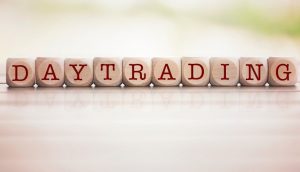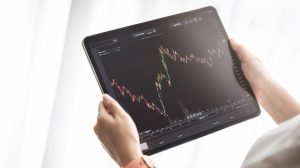In the UK, day trading has risen in popularity over the years, gaining traction during the Coronavirus pandemic. While many in the UK are getting involved in day trading or cryptocurrency trading, it has been a cause of concern that day trading may be a new form of escape for those with compulsive desires to gamble.
What is day trading?
Day trading is the selling & buying of financial instruments within the same day. Day traders typically buy and sell stocks, futures contracts, options, and other financial instruments multiple times throughout the day in an attempt to profit from short-term price fluctuations.
Due to a constantly fluctuating economy, both local and global, these spikes have led some to make their fortunes but have also ended in complete financial ruin for some. A lot of people invest money which is their life saving or take loans in hopes of coming up with a profit.

This is again only done on a day-to-day basis with no long-term investments. One can go through a spell of good trades or bad, the problem being that they are only happening on a day-to-day basis which can become addicting and become hubs for gambling due to COVID-19 pandemic.
How does day trading differ from investing?
Investing is the act of buying and holding financial instruments for the long term. Day trading, on the other hand, is a shorter-term strategy where traders aim to make profits from the intraday movements in the market.
These short-term investments are made off of day-to-day fluctuations within the market. Day trading can be addicting if the trader is not careful and does not take the time to learn about the risks involved. Day trading can be a great way to make money, but it can also be a great way to lose money if the trader is not careful.
What are the potential risks associated with day trading and how could it be a form of gambling for some?
There are a few potential risks of day trading. First, day trading can be very risky, and traders can lose a significant amount of money if they are not careful. Second, day trading can be addictive, and traders can become obsessed with trying to make money, which can lead to financial ruin.
Finally, day trading is a complex activity, and traders need to have a certain level of knowledge and skill to be successful. For some people, day trading may be a form of gambling because they are not fully aware of the risks and complexities involved.
Day trading is a highly speculative activity, and there is a significant risk of losing money. You are only investing in what you can predict to be a spike or fluctuations in the market.

These small fluctuations are the ones that occur due to everyday changes rather than the changes which come off of long-term predictions. Short-term investments, especially those which are on a day-to-day basis, can for the most part not be calculable. The risk of making mistakes: Day trading can be a complex activity, and it is easy to make mistakes that can cost you money.
While day trading may have some similarities to gambling, there are also some differences. For example, in gambling, you are typically betting against the house, while in day trading, you are typically buying and selling assets in the open market.
Additionally, day trading generally requires more knowledge and skill than gambling, and there is the potential to make money through day trading. Although more knowledge is required to be a good and responsible day trader, it is not required for you to start doing it.
Some people can become addicted to day trading, and this can lead to financial ruin. Because of their obsession with day trading, people commonly lose their whole life savings which is another quality it shares with gambling.
Day trading can be addictive because it can be exciting and provide a rush of adrenaline. Additionally, day traders can become addicted to the potential for short-term financial gain. The idea of turning over a hefty profit over short-term high stakes investments can be very addicting. If we are to take out one having the required level of expertise of the market what we are left with is but an addiction.
What needs to be done to regulate day trading?
There is no one-size-fits-all answer to this question, as the best way to regulate day trading will vary depending on the country or region in question.
However, some possible regulatory measures that could be implemented include setting limits on the amount of money that can be invested in a day trade, as well as the number of trades that can be made in a day.

Additionally, regulators could require day traders to have a certain level of experience or knowledge before being allowed to trade. This could include having a certification system through which you could get educated and certified as a day trader.
This would ensure you are fully informed of the potential risks and aware of common practice strategies in analysing the markets to turn over profits. This would make the whole practice infused with more rational processes rather than an instinctual one that corresponds to addiction.
Summary
While day trading can be a means to have netted a quick profit, if you have an understanding of day trading and the market, for others it can become an addiction. These are things to keep in mind if you are a day trader or you know anyone who is:
An in-depth understanding of day trading strategies and recent market fluctuations is necessary for you to be making fully informed and calculated trades.
Day trading even with properly certified knowledge is a very risky business as it is contingent upon micro-market fluctuations and rumours. You don’t necessarily have to be taking losses. You can be earning profits on most trades and still suffer from the addiction it causes.
Addiction refers to you being consumed by a habit, You can become very good at the habit, but if it ruins your quality of life, it can be an addiction.



































